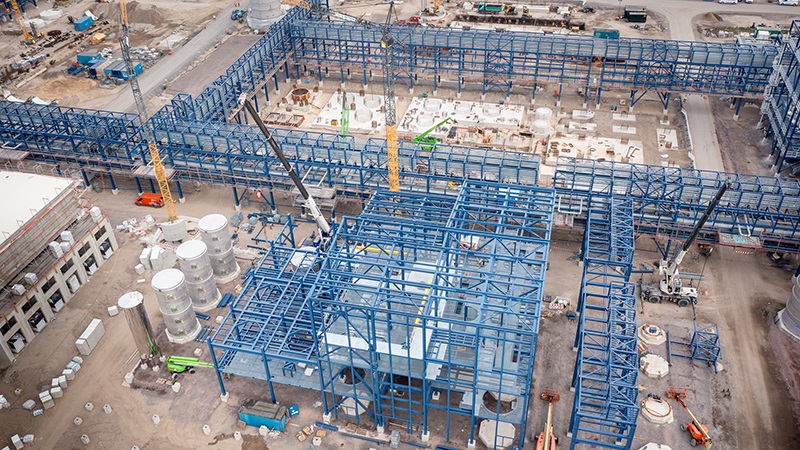UPM Biochemicals’ biorefinery at Leuna in Saxony-Anhalt, Germany, moved one step closer to creating the world beyond fossils when the first delivery of wood from sustainably managed regional forests arrived on site today.
The wood is both a symbolic first and an important practical step – it will enable UPM Biochemicals to begin testing its wood handling and processing activities. At the same time, it is now able to establish reliable supply chains and processes for future wood-sourcing operations and logistics chains.
Michael Duetsch, Vice President UPM Biochemicals, said: “The bioeconomy inspires us to create a future beyond fossils. Our biochemicals are made from responsibly sourced hardwood and their CO2 footprint is a radical improvement on their fossil-based equivalents. The deliveries today, coming from regional forests, are a big major step towards the planned commissioning and start-up of the refinery next year. And they are proof of our rigorous focus on sustainability, from the sourcing of our wood, through the footprint of our process and the impact of our products.”
100% of the wood used to produce UPM’s renewable biochemicals is either FSC or PEFC-certified, sourced from regional beechwood forests, conserving biodiversity and natural ecosystems. All the wood used is fully traceable and supported by a verified third-party chain of custody.
The Saxony-Anhalt State Forest Service’s south division manages the area around Leuna, about 21,500 hectares of mainly broadleaf forest – and the first truck with beechwood that arrived was delivered from this forest today. All the districts where UPM’s beechwood is harvested are certified according to the PEFC certification, and some are also certified according to the FSC certification.
After breaking ground in 2020, the construction of the UPM biorefinery is in full swing. The huge construction site is currently a hive of activity with up to 1,000 workers on-site. The concrete foundations have been poured, and the first buildings are rising from the ground. The huge pipe rack that will bear the grid for utilities, for example, has been constructed.
The bio-mono ethylene glycol (UPM BioPura) that will be manufactured in the biorefinery will serve as a base material for various industrial products and consumer goods, such as plastic (PET) bottles, packaging materials, polyester textiles, and engine and battery coolants. Other glycols can be converted into resins, cleaning agents, de-icing fluids, fragrances, and cosmetics. Wood-based renewable functional fillers (UPM BioMotion) are a completely new, sustainable product and alternative to carbon black and precipitated silica in various rubber end uses such as tyres, hoses, rubber floorings and scores of other rubber applications.
